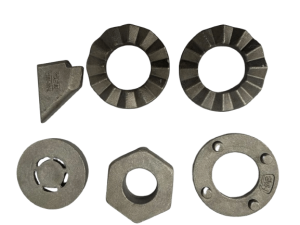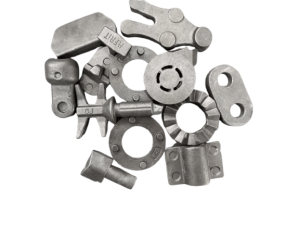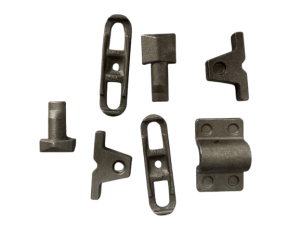Precision Die Forging
Table of Contents
What is Precision Die Forging?
Precision die forging is a type of die forging process that primarily uses precision forging to manufacture components. By precisely controlling factors such as molds, temperature, and pressure, precision die forging produces near-net-shape blanks. This process reduces the need for subsequent machining, improves material utilization, and enhances the production efficiency of forged parts.

Industry Applications of Precision Die Forging?
Precision die-forged components are widely used in various industries, including the automotive, aerospace, military, shipbuilding, energy equipment, and chemical equipment industries.
In the automotive industry, precision die forging is used to manufacture gears, universal joints, wheel hub bearing units, shafts, and other critical components. In the military industry, it is utilized for tank components and parts for weapon launch systems, among others.

Differences Between Precision Die Forging and Traditional Die Forging
Mold Design
Precision die forging requires highly precise mold designs, which help reduce subsequent machining, save materials, and lower production costs. In contrast, traditional die forging molds are simpler, often requiring additional machining, which increases production costs.Tolerance Requirements
Precision die forging has stricter tolerance requirements, typically within ±0.1mm, while traditional die forging tolerances are generally around ±0.5mm. This means that manufacturers engaged in precision die forging must have advanced machining equipment to meet these higher accuracy standards.Material Selection
Precision die forging is compatible with a wider range of materials, including difficult-to-deform alloys. Traditional die forging, on the other hand, is mostly used for medium- and low-strength materials.
Key Technical Requirements for Precision Die-Forged Components
Mold Design
H13 steel is commonly used for mold manufacturing. After heat treatment, the hardness of the mold is improved. The mold cavity must be polished to a mirror finish, and shrinkage rates must be considered to ensure precision.Forging Equipment Precision
Hydraulic presses or servo presses are often used to control speed and stroke accuracy, ensuring the precision of the forging process.

Why Choose Us for Precision Die-Forged Components?
As a globally leading manufacturer of precision forged components, Luoyang Forging has extensive experience in precision die forging mold design. We also possess advanced precision machining equipment and have stable material suppliers that provide a variety of precision forging materials.
